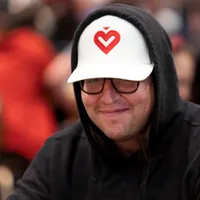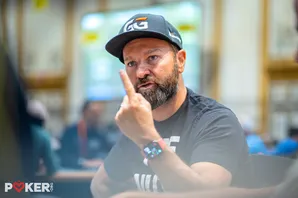When you were a junior in high school, how much of a role did poker play in your life? Were you using the lessons from the felt as a mirror for the broader world around you? If you, unlike like this author, thought poker was anything more than a fun game to play in your buddy's basement you probably would have had a lot in common with Kylie Abrego.
Abrego, a junior at Sacred Heart Cathedral Preparatory in San Francisco, California, thinks about poker more than her peers – maybe even more than most professional players. After learning poker from her father at a young age, she dove headfirst into exploring the game and, later, discovered that the lessons she learned at the table could inform her real-world decision-making.
PokerOrg spoke with Abrego after seeing her TEDxYouth Talk - watch above now - to hear more from the inquisitive young woman.
What was your TEDxYouth Talk experience like?
It was interesting. I usually don’t mind public speaking, I generally enjoy it, but in this case it was very formatted. You had to prepare a lot. First you have to draft your idea and then you actually write the talk. Then you have to go up there and practice presenting it, like where you’re going to pause and your mannerisms – those were the more difficult parts.
Once you grasped the basics of poker, was there any particular aspect of the game that grabbed your attention or interest?
Yeah, I mentioned this in my talk, but the way my dad explained the game to me and the way we played it was very legitimate and serious. It didn’t feel like we were playing a regular game. He handled it the way you would at a real poker table and the rules were the rules. I wouldn’t get to see his cards after hands, there was no going to the discard pile to see what everyone was doing with their hands.
He kept it very straightforward – these are the rules of the game and you can’t break them. I remember being really young and curious about what his cards were or what strategy he was using. I would reach for his cards all the time and he’d say, ‘Nope, you’re not looking at them. You’ll never know. That’s how it goes.’
That was definitely the part that hooked me because I had never played a game that felt high stakes – where you don’t get to find out what the other person’s thinking and you may never know.
Is poker a household game for your family? Obviously, your dad taught you the game, but do your mom or siblings play as well?
Yeah, my parents met in Las Vegas – they worked as card dealers at a casino. My dad was always a really big fan of the game and he taught it to us, me and my little sister, when we were really young. But my dad and I are the ones who are really into it, we send each other videos all the time and play all the time.
What does poker look like in your life right now? Do you play regularly?
I definitely play with my dad quite a bit. It's a lot of studying the game by playing hands, watching recordings of gameplay. It's always an event when something interesting happens in the poker world – I want to talk about it and bring it up. And then obviously in creative outlets, like the TEDx Talk or school essays, I tend to gravitate towards talking about poker because I feel like it's such an interesting topic that not a lot of people know the bulk about.
Is poker going to be mostly a hobby for you or are you interested in the game on a professional level?
It's always been more of a hobby, but the more I get into it and the more I explore it, I see a lot of parallels to the business world, negotiation, and finance and those are the fields I'm trying to go into. I've read about Wall Street executives who require their employees to play poker because they think it's such an essential game to understand the way you need to think in business. That's what I've been so drawn to, implementing the game into my daily life and career.
You have some big life decisions ahead – college, career, etc. – do you think you'll use lessons from poker when making those choices?
Definitely, I think it comes up more often than not. Day in, day out, there are so many decisions you have to make. I feel like every time I make a decision, I try to think about it in a poker lens, or even if I don't really mean to, I approach it with that mindset. Just generally thinking about what information I have, what I know and what I don't know, and how do I kind of fill the gaps to make that decision.



















